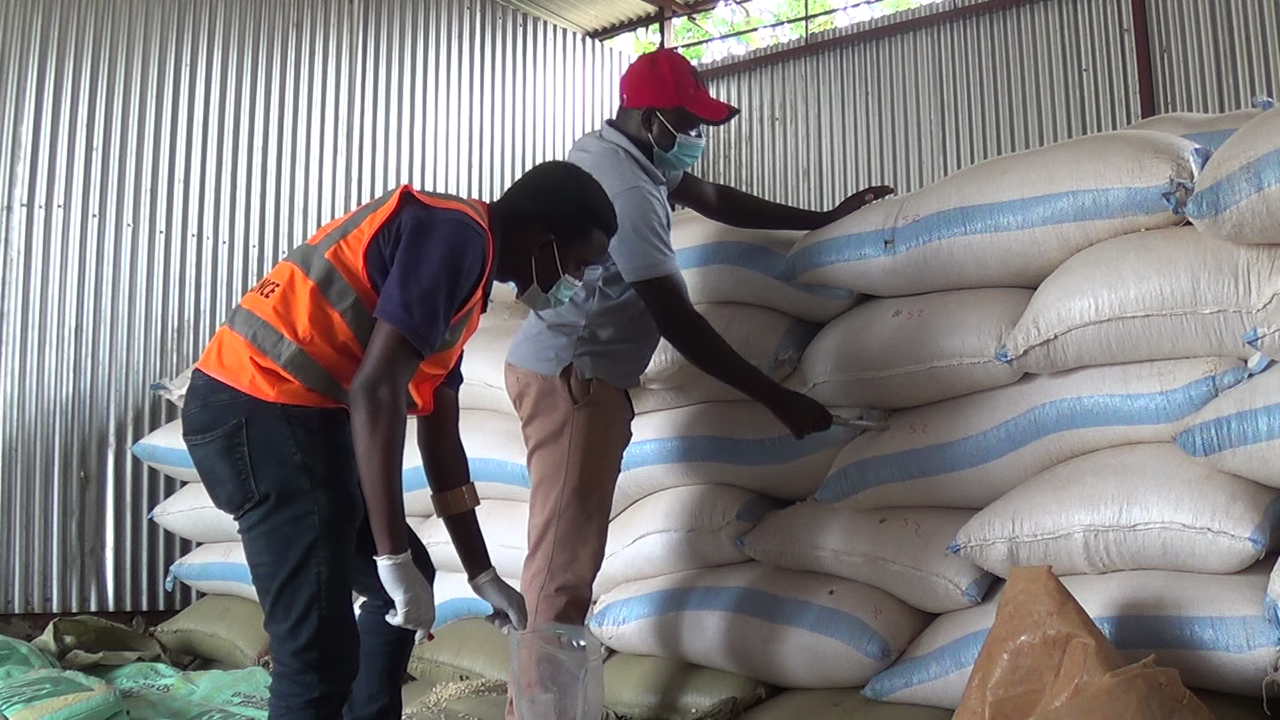Govt starts testing maize for aflatoxins

Officials from UNBS takes samples of maize from one of the stores in Busia to test for aflatoxin content on March 12. PHOTO | DAVID AWORI
Uganda National Bureau of Standards (UNBS) officials have started taking samples of Ugandan maize to test for traces of aflatoxins following the ban of the cereal in the Kenyan market.
The team arrived in Busia border District on Saturday and embarked on collecting maize samples from all stores for testing in their laboratory in Kampala, with results expected today.
“We are a big team from UNBS picking maize samples from all stores to test for levels of aflatoxins,” one of the officials, who declined to be named, said.
He added: “We expect results to be out tomorrow (Monday) because the ministers of Agriculture and Trade are required to present the outcome (of levels of aflatoxins) to Parliament.”
He said the tests would help government make an informed decision for the resumption of the maize exports.
Last week, Nairobi informally lifted the ban on the importation of maize from Uganda and Tanzania, but imposed stringent measures its traders are expected to meet.
The Agriculture Ministry of Kenya ordered that all maize exporters will have to be registered and obtain a certificate of conformity.
In addition, traders are required to have certificates of origin from the areas where the maize was grown before clearance at the border point.
In a statement read by the Agriculture Chief Administrative secretary, Mr Lawrence Angolo, the restrictions were aimed at addressing issues of safety. Kenya is also directing regional governments to fast-track ratification of issues relating to aflatoxins and to submit them to the East African Community.
The UNBS team is also inspecting the state of maize stores and marking all those that have been inspected.
Traders say
Mr Bakali Magemeso, a trader in Busia market, said the arrival of the UNBS team offered a ray of hope to the traders and farmers who were stuck with maize.
Mr Magemeso said since last week, traders have collectively lost more than Shs10b, estimating that on average, maize valued at about Shs2b is exported on a daily basis.
Mr Frank Kasumba, the manager of Busia market, said the measures Kenya was implementing were stringent. “If a farmer, say, in Mubende wanted to bring maize to the border, who is supposed to give him a certificate which Kenya is demanding for?” he asked.
Dr Daniel Lumonya, a senior lecturer at the Uganda Technology and Management University, who is also a researcher in agriculture, said government should be looking at how the affected can be compensated.
“I think supporting farmers into cooperatives so that they can access knowledge on post-harvest handling was very critical,” he said.




